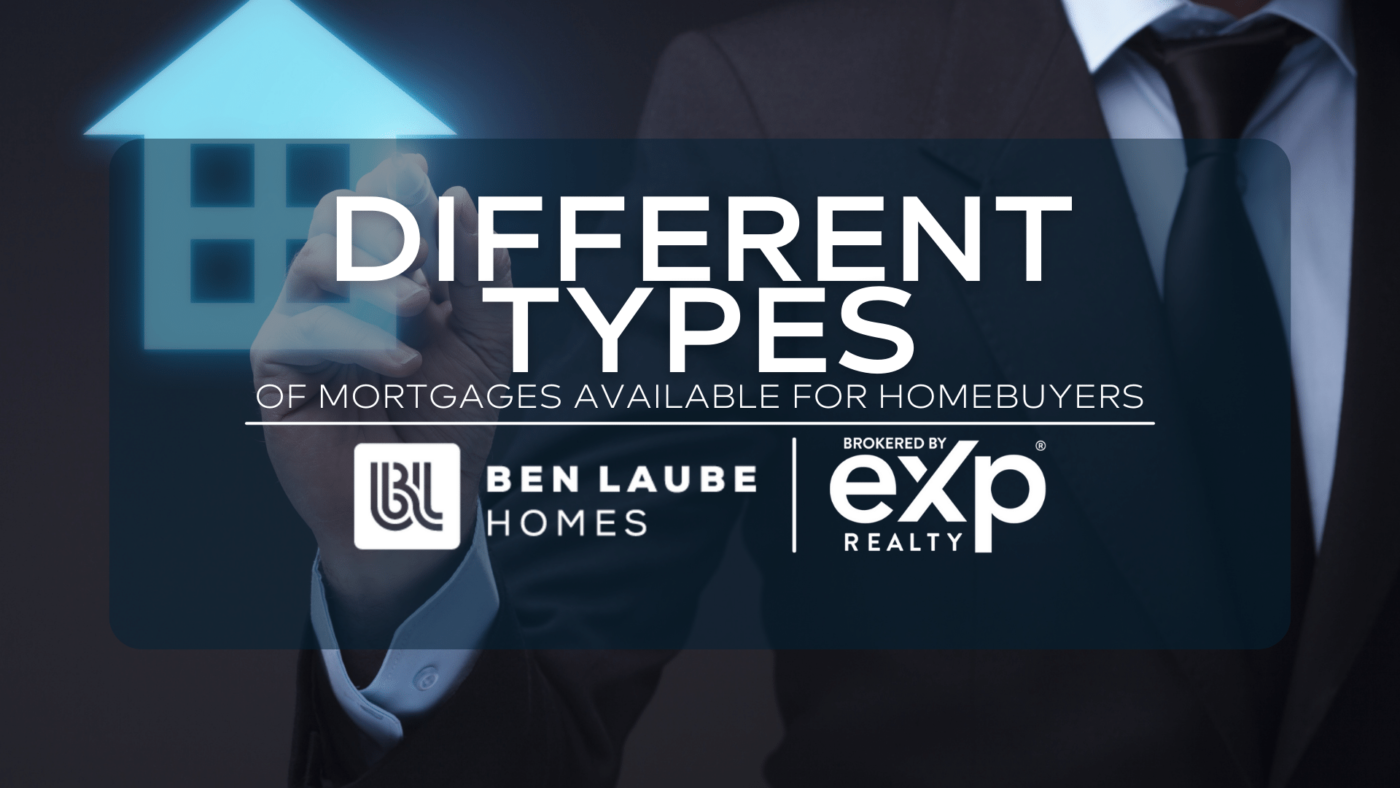When it comes to buying a home, most people don’t have the cash on hand to pay for the entire purchase upfront. That’s where mortgages come in. Mortgages are loans that allow you to buy a home and pay it off over time. There are several different types of mortgages available, each with their own benefits and drawbacks. In this blog, we explore some of the different types of mortgages and help you determine which one might be right for you.

Conventional Mortgages
Conventional mortgages are the most common type of mortgage. These loans are not insured or guaranteed by the federal government and typically require a down payment of at least 5%. The interest rates on conventional mortgages are generally lower than other types of mortgages, but the requirements for approval are stricter. To qualify for a conventional mortgage, you will need a good credit score and a low debt-to-income ratio.
Benefits: Lower interest rates, higher loan amounts, flexible repayment terms, no upfront mortgage insurance.

FHA Mortgages
FHA mortgages are loans that are insured by the Federal Housing Administration. These loans are designed to help first-time homebuyers and those with lower credit scores or smaller down payments. FHA loans require a down payment of at least 3.5% and are available to borrowers with credit scores as low as 580.
Benefits: Lower credit score requirements, smaller down payments, higher debt-to-income ratio, easier to qualify for.

VA Mortgages
VA mortgages are loans that are guaranteed by the Department of Veterans Affairs. These loans are available to active-duty military members, veterans, and their families. VA loans require no down payment and no private mortgage insurance (PMI), making them a popular choice for those who qualify.
Benefits: No down payment required, no PMI, lower interest rates, easier to qualify for.

USDA Mortgages
USDA mortgages are loans that are guaranteed by the United States Department of Agriculture. These loans are designed for those who live in rural areas and have lower incomes. USDA loans require no down payment and have flexible credit requirements.
Benefits: No down payment required, low interest rates, flexible credit requirements.

Jumbo Mortgages
Jumbo mortgages are loans that exceed the conforming loan limits set by Fannie Mae and Freddie Mac. These loans are available to those who need to borrow more than the standard limit for their area. Jumbo mortgages typically have higher interest rates and stricter requirements for approval.
Benefits: Higher loan amounts, flexible repayment terms, no upfront mortgage insurance.

Adjustable-Rate Mortgages (ARMs)
Adjustable-rate mortgages, or ARMs, have interest rates that can change over time. These loans typically start with a lower interest rate than fixed-rate mortgages, but the rate can rise or fall over time. ARMs are a good option for those who plan to move or refinance before the rate changes.
Benefits: Lower initial interest rates, flexible repayment terms, good for short-term homeownership.
In conclusion, choosing the right type of mortgage is an important decision when buying a home. Each type of mortgage has its own benefits and drawbacks, so it’s important to understand the differences and choose the one that best fits your financial situation and homeownership goals. Be sure to do your research and talk to a mortgage specialist when exploring your options, and out team can connect you with some of the best resources available in helping you make your decision seamless.

